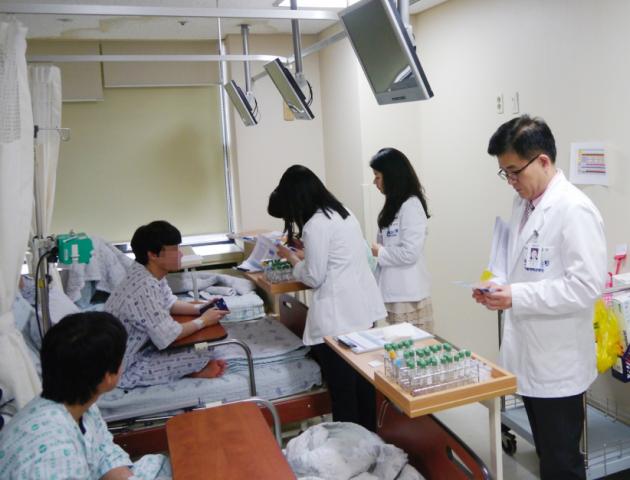Howard Lee, researcher and professor at Seoul National University Hospital (SNUH), and his team are researching micro-dosing technology for new drug development in Korea, on the heels of testing approval from the U.S. FDA.
Micro-dosing technology uses extremely low, nonpharmacological active doses of a drug to determine the pharmacokinetic profile of the drug. The technology attaches a microscopic amount of a readily detectable type of radioactive isotope called C14 to ingested medication. This allows researchers to trace how the body absorbs, distributes, and excretes medicines after consumption.

In 2004, the FDA addressed the problem of micro-dosing in its Critical Path document to highlight the discrepancy between significant scientific advances and limited drug development processes. Global pharmaceuticals based in the U.K. and the U.S. have since used a micro-dosing strategy in clinical trials to cut down the long, complicated, and expensive process of drug development.
Despite advances in micro-dosing technology around the world, use of the technology in Korea has lagged behind, according to Professor Lee. He noted a relative lack of interest in the technology until a Korean biopharmaceutical company approached him and struck a partnership with his team to develop the technology for their investigational compound for launch in the U.S.
On Tuesday, SNUH announced that the research team and the pharmaceutical company got FDA’s approval for its investigational new drug (IND) application that will allow the two to carry out a micro-dosing clinical trial in Korea. The FDA’s IND program enables the applicant to ship experimental therapies across states to clinical investigators. Clearance of the application allows the candidate drug to enter a phase 1 trial.
As the first case in Korea to get an FDA approval to develop a new drug in a micro-dosing clinical trial, the significance is considerable, Lee said.
“What makes this study unique is two-fold. This is the first micro-tracing study that got approval for an IND application submitted by a Korean pharmaceutical company, and second, this is the first ever IND opening study in a non-oncological field performed by South Korean investigators in Korea on Korean patients,” Lee said.
The FDA approval follows almost four years of research backed by government funds.
“Frankly speaking, we are lagging behind other countries in applying new innovative technology, but this is still a relatively new technology in drug development,” he said. “We aren’t the first to use the technology, but we are the first ever to use it to develop new drugs in Korea.”
If the study proves successful, the micro-dosing technology could be used as a safe and cost-effective method to develop new drugs. The technology can help increase the success rate of development while cutting down on a lot of time-consuming, resource-intensive trial-and-error.
Meanwhile, the IND opening study points to increasing interest in micro-dosing technology from not just Korea's public but also the private sector.
“Previously, it was hard to say that the pharmaceutical industry was interested in adopting this technology to develop new drugs. We conducted the previous four micro-dosing studies through government grants, but this is the first time a pharmaceutical company approached me to develop the technology,” Lee said.
As the first industry-sponsored micro-dosing study, Lee says that positive results will not only progress academic research but also progress commercialization of the technology to develop new drugs.
“I hope and believe that this kind of study will allow more options for Korean pharmaceutical companies,” Lee said.

